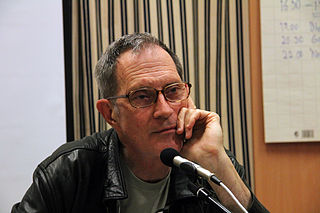A Quote by J. R. R. Tolkien
I cordially dislike allegory in all its manifestations, and always have done so since I grew old and wary enough to detect its presence. I much prefer history – true or feigned– with its varied applicability to the thought and experience of readers. I think that many confuse applicability with allegory, but the one resides in the freedom of the reader, and the other in the purposed domination of the author.
Related Quotes
Now, if the book of Genesis is an allegory, then sin is an allegory, the Fall is an allegory and the need for a Savior is an allegory - but if we are all descendants of an allegory, where does that leave us? It destroys the foundation of all Christian doctrine-it destroys the foundation of the gospel.
If you look only as Genesis as an allegory, you have a major problem, because if it's an allegory, then tell me who our ancestor was? If Abraham was real, then from Abraham if Adam isn't real, if it's just an allegory, it's just a story, then what's the real Adam who really fell in a garden and really sinned? Where did we come from?
The cry that 'fantasy is escapist' compared to the novel is only an echo of the older cry that novels are 'escapist' compared with biography, and to both cries one should make the same answer: that freedom to invent outweighs loyalty to mere happenstance, the accidents of history; and good readers should know how to filter a general applicability from a particular story.
A theory is the more impressive the greater the simplicity of its premises is, the more different kinds of things it relates, and the more extended is its area of applicability. Therefore the deep impression which classical thermodynamics made upon me. It is the only physical theory of universal content concerning which I am convinced that within the framework of the applicability of its basic concepts, it will never be overthrown.
Literature for me… tries to heal the harm done by stories. (How much harm? Most of the atrocities of history have been created by stories, e.g., the Jews killed Jesus.) I follow Sartre that the freedom the author claims for herself must be shared with the reader. So that would mean that literature is stories that put themselves at the disposal of readers who want to heal themselves. Their healing power lies in their honesty, the freshness of their vision, the new and unexpected things they show, the increase in power and responsibility they give the reader.
































